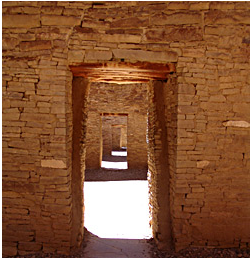Publication Date
6-11-1962
Abstract
It is the purpose of this thesis to delineate the concept of flexibility as a tool for the analysis of non-literate social systems. Despite the frequent use of the descriptive term "flexible" in discussion of ethnographic case materials, the potential analytic significance of the concept has not been examined systematically. The initial portion of the thesis is concerned with an examination of the term "flexibility" in various contexts of ethnographic usage. In all cases it is found to refer to a system characterized by the feature of optional or alternative possibilities for interpersonal or group relationships. It is hypothesized that this recurrent feature constitutes the fundamental element of the concept of flexibility. The major portion of the thesis is devoted to the analysis of ethnographic data for five societies which manifest the fundamental element of flexibility: the Iban, Konkoma Lapp, Mescalero Apache, Plateau Tonga, and Turkana. The data indicate that the societies share eight significant organizational and cultural features in addition to the feature of optional relationship possibilities, (1) domestic and community groups are the important structural units; (2) political order is defined by a network of relationships rather than a system of groups; (3) exclusiveness and perpetuity are not critical for group functioning; (4) leadership recruitment emphasizes ability; (5) individual freedom is stressed; (6) physical mobility is emphasized; (7) the concept of authority is egalitarian; and, (8) there is unrestricted access to the resources of the environment. In the conclusion a relationship between these eight features and the fundamental element of flexibility is demonstrated. It is proposed, therefore, to consider the former as additional defining variables of the concept of flexibility. However, a concept based on these variables will require testing, since it has been possible to explore only a limited number of ethnographic cases. It is suggested that the concept, after further refinement, will be useful in cross-cultural studies of a wide range of non-literate societies.
Keywords
Social Systems, Non literate Societies, Flexibility, Iban, Konkoma Lapp, Mescalero Apache, Plateau Tonga, Turkana
Document Type
Thesis
Language
English
Degree Name
Anthropology
Level of Degree
Masters
Department Name
Anthropology
First Committee Member (Chair)
Harry Wetherald Basehart
Second Committee Member
Frank Cummings Hibben
Third Committee Member
Willard Willams Hill
Recommended Citation
Lapovsky, Elizabeth Jane. "An Examination of the Concept of Flexibility as a Tool for the Analysis of Social Systems." (1962). https://digitalrepository.unm.edu/anth_etds/109

